OOOOOOOOOOOOOOOOOOOOOOOOOOOOOOOOOOOOOOOOOOOOOOOOOO
Decent version of the Tennesse Williams saga.
First off, yes, Natalie Wood and Robert Wagner were too old for the parts they were playing, but it doesn't detract from the story, at least on Natalie Wood's part.
The characters are all at rich Big Daddy's (Oliver) plantation home to celebrate his 65th birthday. Unknown to him and Big Mama (Stapleton), but known to everyone else, this is also his last, as he's been diagnosed with terminal cancer but told that it's a spastic colon to soften the blow, and his days are numbered.
Brick (Wagner) is the all-American hero. A football star, the envy of everyone. He should be at the top of the world, but his best friend Skipper has recently died as a result of too much alcohol. In addition, Skipper started drinking after being convinced by Brick's wife Maggie (Wood) that he was gay, and their friendship, which Brick deems pure and true, was actually driven, in Maggie's opinion, by Skipper's unrequited love for Brick. He attempts to sleep with Maggie, but it ends badly, and after Brick turns his back on him after confessing he loves him, he drinks himself to death.
At the start, Brick is now drinking himself slowly to death, all the while being resentful of Maggie's intervention, and her part in his death. It's never clear if Brick himself was gay, and if so, if just for Skipper, or in general. The fact that he and Maggie engaged in a sexual relationship at least seems to confirm he was not purely a gay man. He coldly ignores Maggie much of the time, instead taking solace in drinking alcohol to achieve the click, when the troubles of his life fade away and he spends the rest of his waking day in blissful peace.
Centering around this are Gooper (Hedley) and Mae (Peach). Gooper is Brick's resentful older brother, who did everything that Big Daddy asked, but never was given the time of day by him, unlike Brick, who gets Big Daddy's affection even when Brick is ruining his life. Gooper and Mae want control of Big Daddy's estate, and do everything in their power to sully Big Daddy's image of Brick, and to highlight the marital strife and hatred between Brick and Maggie, and the fact they are childless, which Big Daddy regrets most of all.
The cast isn't as good as the '58 version with Paul Newman, Elizabeth Taylor, Burl Ives, Jack Carson, Judith Anderson, and Madeline Sherwood. But the film highlights the homosexual undertones of Williams' original play, which could not be delved into because of the sanitary codes of the 50s. And really, it's hard to top Paul Newman and Elizabeth Taylor at the top of their games, and added to that are Ives and Sherwood, who recreate their roles from the hit Broadway play.
Wood makes for an excellent Maggie, despite her age. Much better than Jessica Lange's characterization, which for the most part was shrill, even when trying to be seductive. Maggie is high-strung, that's for sure, living with a man who sets guidelines for their staying married, refuses to sleep with her, and resents her fully. But Wood finds the right balance between tension and seductiveness.
Wagner is a bit miscast as Brick. He doesn't look the part. Brick is an athletic god. Maggie laments the fact he hasn't lost his looks yet, in spite of the alcohol. That's just not Wagner. He's a good-looking guy still, he's just not the magnetic image Brick is supposed to be. I like Robert Wagner in other things, this just isn't a role he's physically fit for. Also, his acting in the first act is off. He's very hateful towards Maggie. That works when she talks about Skipper, but shouldn't be the undertone of the entire act. He's more indifferent to Maggie than anything, until she rubs the Skipper wound raw, at least in Williams' play. Later on though, Wagner grows in the role, and is much better in the second act, when talking to Big Daddy, and the third, when the revelation Big Daddy is drying and the vultures trying to take the estate start circling.
As Daddy, Olivier fares much better. His southern accent is good, his acting is good, and he's light years ahead of Rip Torn in the aforementioned remake with Lange, who was apparently directed to play Big Daddy as drunk and senile. Big Daddy is a powerful man, you're supposed to be awed in his presence, and while I like Rip Torn, he just wasn't it. Olivier strikes the balance of awe and desperation, wanting to leave everything to Brick, but unable to reconcile the fact that he'd be leaving a 10 million dollar estate to a childless drunk who would simply use the money to buy alcohol and further run himself into the ground.
Maureen Stapleton also excels as Big Mama, easily the most pitiful character in the film. She loves and dotes on Big Daddy, despite his open resentfulness of her, and his affinity for insults, which she tries to love, in spite of the fact it hurts. She really shines in act three, which is her pivotal scene in the play.
Also, Hedley and Peach are good in their lesser roles of Gooper and Mae, They're not heavily dimensional, serving mainly as antagonists to drive the other characters to get through to Brick, but they play well what they're given.
It's not the best of the films, that goes to the '58 version, in spite of it's upbeat ending and skirting around of the homosexual undertones in the original play, but it's the better of the two straight play adaptations, in spite of some miscasting on Robert Wagner's part, though he does OK in the role. Ultimately, this is a dysfunctional day in the lives of very dysfunctional people, and overall, it delivers.
Also, Hedley and Peach are good in their lesser roles of Gooper and Mae, They're not heavily dimensional, serving mainly as antagonists to drive the other characters to get through to Brick, but they play well what they're given.
It's not the best of the films, that goes to the '58 version, in spite of it's upbeat ending and skirting around of the homosexual undertones in the original play, but it's the better of the two straight play adaptations, in spite of some miscasting on Robert Wagner's part, though he does OK in the role. Ultimately, this is a dysfunctional day in the lives of very dysfunctional people, and overall, it delivers.
OOOOOOOOOOOOOOOOOOOOOOOOOOOOOOOOOOOOOOOOOOOOOOOOOOOO
a sizzling Southern saga
Natalie Wood was probably born for the role of Maggie the Cat, a frustrated woman trapped in a marriage to a drunk who doesn't want to face the reality of life. Playing her husband Brick, a former football player and commentator, is real-life husband Robert Wagner - and those who only know him from 'Hart to Hart' will be surprised by how good an actor he is here.
In a set which is strictly budget, but still gets across the claustrophobia of a Southern summer, Wood and Wagner spar with each other, and balance the slight overacting (and strange make-up) of Laurence Olivier as Big Daddy, the patriarch who doesn't realise his time is up.
All three are very good in this play and some areas which were excised from the better-known Taylor-Newman film return to the script, and the plot is all the better for it. But this is Natalie Wood's show, and she knows it. Still glamorous in middle-age, she purrs and plots to save her marriage and get one over her greedy, grasping in-laws, Gooper and May, and their 'no-neck monsters'.
Well worth watching and very enjoyable.
OOOOOOOOOOOOOOOOOOOOOOOOOOOOOOOOOOOOOOOOOOOOOOOOOOOO
CAT ON A HOT TIN ROOF
Natalie Wood and Elizabeth Taylor had one thing in common -- beauty and a delectable innate sexiness. So it makes sense that both would tackle Tennesse Williams Maggie the Cat, in "Cat On A Hot Tin Roof."
In this version of "Cat On A Hot Tin Roof," its clear that the characters of Brick and Maggie the Cat are older. But, that makes the drama just that much more believable and interesting. They've put on a few years, which enhances the desperation of all the characters to achieve their goals and needs.
Maggie will not allow herself and Brick to miss out on the financial safety net that gives her a sense of peace. Brick, is even more on the edge from burying his feelings about his dead school friend and former football teammate, whom he probably held an unacceptable sexual attraction for.
The heart of this presentation is Natalie Wood's incredible portrayal of Maggie the Cat. She brings a sensuality to the part that makes the audience believe that she will triumph in her endeavors. Against all odds. And these odds are great in this unwatered down production.
Maggie the Cat has a tougher time in this version. In the 1958 film version starring Taylor and Paul Newman, the filmmakers couldn't explore Bricks' sexuality.
In this 1976 TV version, its fully explored per the original intentions of the author. Maggie is trying against the odds to seduce a husband whose attraction leans in another direction, to achieve her goal -- security. To please an old man that she admires and loves. To win back her true love? Maybe.
In the end, my money is on Nat!
Robert Wagner gives one of his best (and true to the character performances). Brick is a drunk -- and Wagner portrays him as just that. Sir Olivier connects with his co-stars, as do the other supporting actors.
The most substantial drawback in this production are -- the production values itself. The Director plans his shots like a bad soap opera. His camera is often aimed too close when he should be wide to capture the scenery and reactions of other players. His cuts are at times jarring. He misses performances through terrible shot selection.
Still, its long past due for this classic to be released to video tape, if only to see the beauty that is and was Natalie Wood, and the classic wonder that is Sir Olivier and company.
In this version of "Cat On A Hot Tin Roof," its clear that the characters of Brick and Maggie the Cat are older. But, that makes the drama just that much more believable and interesting. They've put on a few years, which enhances the desperation of all the characters to achieve their goals and needs.
Maggie will not allow herself and Brick to miss out on the financial safety net that gives her a sense of peace. Brick, is even more on the edge from burying his feelings about his dead school friend and former football teammate, whom he probably held an unacceptable sexual attraction for.
The heart of this presentation is Natalie Wood's incredible portrayal of Maggie the Cat. She brings a sensuality to the part that makes the audience believe that she will triumph in her endeavors. Against all odds. And these odds are great in this unwatered down production.
Maggie the Cat has a tougher time in this version. In the 1958 film version starring Taylor and Paul Newman, the filmmakers couldn't explore Bricks' sexuality.
In this 1976 TV version, its fully explored per the original intentions of the author. Maggie is trying against the odds to seduce a husband whose attraction leans in another direction, to achieve her goal -- security. To please an old man that she admires and loves. To win back her true love? Maybe.
In the end, my money is on Nat!
Robert Wagner gives one of his best (and true to the character performances). Brick is a drunk -- and Wagner portrays him as just that. Sir Olivier connects with his co-stars, as do the other supporting actors.
The most substantial drawback in this production are -- the production values itself. The Director plans his shots like a bad soap opera. His camera is often aimed too close when he should be wide to capture the scenery and reactions of other players. His cuts are at times jarring. He misses performances through terrible shot selection.
Still, its long past due for this classic to be released to video tape, if only to see the beauty that is and was Natalie Wood, and the classic wonder that is Sir Olivier and company.
OOOOOOOOOOOOOOOOOOOOOOOOOOOOOOOOOOOOOOOOOOOOOOOOOOOOOOO
NATALIE WOOD and LAURENCE OLIVIER
The 1976 Cat on a Hot Tin Roof with Laurence Olivier, Robert Wagner, Natalie Wood and Maureen Stapleton is a lesser-known, yet still outstanding version of this classic play. Natalie Wood plays Maggie the Cat, a middle-aged woman married to an ex football star who is no longer in love with her and has turned to alcohol to deal with the death of a friend. Robert Wagner is Maggie's husband Brick, who just wants some peace and quiet so he can relax and drink his whiskey. Brick and Maggie are visiting Brick's father Big Daddy, played by Laurence Olivier, who has just been diagnosed with cancer on this his sixty-fifth birthday. Big Daddy is a multi-millionaire who owns a 28,000-acre plantation in Mississippi. Big Momma is having a birthday party for Big Daddy so the entire family is at the estate and everyone is creating drama. Big Daddy’s eldest son Gooper and his wife Mae and their five children seem to be the cause of most of the drama. This isn’t their intention of course, it’s just that they are very loud and very brash and don’t exactly keep to themselves and aren’t exactly cordial. Gooper and Mae aren’t alone at fault, as Big Daddy himself has a few outbursts and Brick and Maggie’s marital problems are very obvious whenever they are together. At first it is kept from Big Momma and Big Daddy that Big Daddy has cancer, they are told that his tests were negative in order to let Big Momma enjoy the birthday party. It is inevitable however that they tell Big Momma the truth about Big Daddy’s cancer something that kind of hangs over their heads throughout the story. The film is done with Tennessee Williams' screenplay and has outstanding performances by Olivier and Wood. The film is really shot and acted more like a stage play and not like a movie. What I mean to say is that it is very theatrical and not cinematic. This isn’t a problem of course; it just takes a couple minutes to get used to. I didn't think Robert Wagner was all that great, he is more of a film actor and less theatrical but he got better as the film went on. This version of Cat on a Hot Tin Roof is definitely worth watching, especially if you're a Tennessee Williams fan.
OOOOOOOOOOOOOOOOOOOOOOOOOOOOOOOOOOOOOOOOOOOOOOOOOOOOO
The third screening in our Classics on TV: Great American Playwrights season at BFI Southbank this month is of the 1976 Granada for ITV production of Cat on a Hot Tin Roof , Tennessee Williams' 1955 Pulitzer-winning play of a Deep South family in crisis. Robert Moore directs this sumptuous production, starring Laurence Olivier, Robert Wagner and Natalie Wood.
Book your ticket on the BFI website here for the 6.20pm screening on Tuesday 13 January 2015. Details about the rest of the series can be read here.
There have been around ten productions of Tennessee Williams' plays produced on British television. Happily, the only two of these productions that survive in the archives are both being shown, in different seasons, at BFI Southbank in the same week of January. T he 1958 play Suddenly, Last Summer was given in BBC2's Performance strand on 6 November 1993, and this Richard Eyre production, starring Maggie Smith, Natasha Richardson and Rob Lowe, is being shown in the Maggie Smith season just two days after Cat on a Hot Tin Roof : read more about this production and book your ticket here .
Robert Moore's Granada for ITV production of Cat on a Hot Tin Roof , starring Laurence Olivier as Big Daddy (who is dying), Robert Wagner as his alcoholic son Brick and Natalie Wood as his dissatisfied wife Margaret ('Maggie'), was transmitted on Sunday 12 December 1976, from 9.05 to 11.00pm.
Robert Moore's Granada for ITV production of Cat on a Hot Tin Roof , starring Laurence Olivier as Big Daddy (who is dying), Robert Wagner as his alcoholic son Brick and Natalie Wood as his dissatisfied wife Margaret ('Maggie'), was transmitted on Sunday 12 December 1976, from 9.05 to 11.00pm.
T cat-on-a-hot-tin-roof-01 his was the second in a series of six great plays of the twentieth century which were transmitted on ITV from 1976 to 1978. The selection of plays was by Olivier, who also acted in five of them, co-producing several and directing one. Olivier is reported as saying that 'I have stood out stiffly and coldly and pompously about television for too long. I belong to an age to which television belongs and one has to get on with it' ('Lord Olivier Takes on TV Roles', The Times , 21 May 1976, p. 4).
'Part of the excitement of the series will be watching [Olivier] tackling modern parts he has never done on stage', noted Michael Ratcliffe in The Times ('Television's Own Olivier Theatre', The Times , 6 December 1976, p. 12). Having seen the broadcast of Cat on a Hot Tin Roof , the critic BA Young considered that 'The playing of the principals was as good as one is likely to see often on television':
'Part of the excitement of the series will be watching [Olivier] tackling modern parts he has never done on stage', noted Michael Ratcliffe in The Times ('Television's Own Olivier Theatre', The Times , 6 December 1976, p. 12). Having seen the broadcast of Cat on a Hot Tin Roof , the critic BA Young considered that 'The playing of the principals was as good as one is likely to see often on television':
Mr Wagner set a mood at the outset and held it throughout, his forehead slightly creased to register his distaste with the world's mendacity, but it was the right mood and when he was required to emerge from it he did so with the right degree of challenge. Natalie Wood's Maggie the Cat, her charms directed unerringly in every direction where they might do her some good, somehow contrived to show her belief, naive though it might be, that what she was doing really was for the best: a matchless performance. Olivier gave Big Daddy a look of home-made aristocracy, wavy grey hair and grizzled moustache against a face in which blood-pressure was discernable […]. His amalgam of selfishness and obstinate affection for his disappointing son made for some moments of effectively restrained passion. (BA Young, ' Cat on a Hot Tin Roof ', The Financial Times (14 December 1976, p. 3.)
This lavish production, designed by Peter Phillips, has visual resonances with big American series such as Dallas that would be transmitted in Britain in the following decade. The high ceilings, chandeliers and servants of Big Daddy's mansion work to suggest inherited wealth, rather than the self-made fortune of a working man, and the necessary softening of the sparkier elements of the playtext also work towards this impression. As Philip C. Kolin, writing in the 2010 Methuen Drama edition of the play, considered, 'Olivier looked more like a stately elder Mark Twain or slimmer Colonel Sanders projecting an aristocratic Big Daddy, not the self-made, coarse man Williams imagined' (pp. lxii-lxiii).
OOOOOOOOOOOOOOOOOOOOOOOOOOOOOOOOOOOOOOOOOOOOOOOOOOOOOOOO
The TV adaptation strikes me as being somewhat more sedate than the film, even though there is shouting enough to bring a less solid house crashing down. It is perhaps something to do with the pacing, still slightly more geared for stage acting rather than the cinema, but lacking a live audience to generate the final spark. Perhaps another contributing factor is that both the lighting and the sound world were not (by modern standards) particularly subtle. All the indoor scenes were bathed in a uniform clear light with little reference to the presumed light sources of an interior. I doubt that anyone would have noticed this at the time, as it seems to have been common studio practice, but with modern (digital?) cameras we have become used to more light and shade.
Similarly, though the background effects were indeed well managed, the microphones picked up uniform levels for speech (just occasionally some shadows from booms were visible as cameras pulled back from close ups). This made for some explosive moments when two (or more) people were shouting over each other – it really was extremely hard to disentangle what they were saying. At first I was frustrated by this, but as it was repeated I began to think it was entirely appropriate. Again, modern sound tracking might have had a different effect.
My recollection of the film (some years since I have seen it) is that it was more circumspect about the allusions to the great friendship of Brick and Skipper. The TV production seemed more definite about this, but again, not knowing the play text, I am not sure if much was cut here. Also Maggie's final invitation to Brick struck me as quite amazingly explicit – not so much for 1976, but certainly for 1955.
The performances were very good. How anyone gets through a play constantly referring to 'Big Daddy', 'Big Mama' and 'Sister Woman' (let alone 'Brick' and 'Gooper') with a straight face is beyond me. But I was left wondering if Maggie was ever actually hurt by anything that had happened or was said to her – or was she just far more successful than her sister-in-law at managing her situation? Brick also seemed for the most part beyond anguish and utterly subsumed by world-weariness. These must have been deliberate interpretative decisions, but they left the piece as something of a spectacle of family dysfunction rather than an interior drama. Brick's final question leaves us tantalisingly unsure whether or not understanding has led to rapprochement.
OOOOOOOOOOOOOOOOOOOOOOOOOOOOOOOOOOOOOOOOOOOOOOOOOOOOOO
I have a vague recollection of seeing this when it was first aired; but, apart from the 3 lead actors, don't remember anything about it, so it was an enjoyable experience to watch it again. Like Nicholas, my thoughts are obviously influenced by the 1958 film, which I have seen several times, though not for a few years.
I thought the whole cast were excellent, and it is worth mentioning the cast in the supporting roles who all gave very good performances. Jack Hedley, especially, I thought was excellent.
However with this play, it is the 3 main roles which dominate and make or break the performance; and it is interesting to compare the interpretation of the characters. Paul Newman's Brick, may have been full of self pity and loathing of everything close to him, but he was still full of passion and energy. Robert Wagner's character, I thought more effective, as he was devoid of the passion and energy. This was a man who had given up; and I think that is probably more believable. The only criticism I'd have of the role, is that through the play he was seen to drink an awful lot, and yet, his speech, and actions became no more impaired.
Natalie Wood v Elizabeth Taylor? I think they were both excellent. Wood's performance: her conniving, plotting, and manipulation was more subtle than Taylor's; but they played the role in a similar way. I just prefer Wood's portrayal on the whole.
As for Big Daddy, I fear, Olivier, great actor though he is, is a pale comparison of Burl Ives' masterpiece. Ives was larger than life, and completely believable as the self made man. As your programme notes indicate, Olivier came across more as someone born to wealth & power. His performance is good, and without Ives as comparison, would deserve the highest credit; but for me I always seemed to be watching Olivier acting, rather than Big Daddy.
So, an excellent production, very enjoyable to watch, not especially spoilt by the passing of time; and good performances from the leads. Interestingly I read that Wagner felt he wasn't really wanted by Olivier. Olivier wanted Wood, and Wood insisted on her husband playing brick. Maybe this “unwanted” feeling helped in his role.









.png)

.jpg)




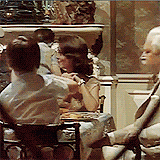






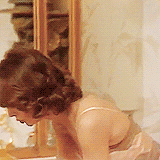
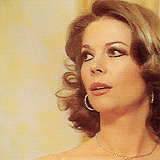








.gif)















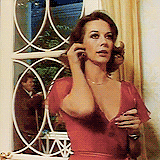

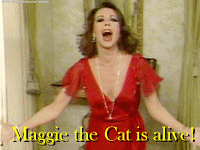


























































.jpg)







.jpg)





.png)




.jpg)






.jpg)













.jpg)


.jpg)










.jpg)



.jpg)

.gif)

.jpg)



.jpg)

















.jpg)
.jpg)

.jpg)
.jpeg)
No comments:
Post a Comment